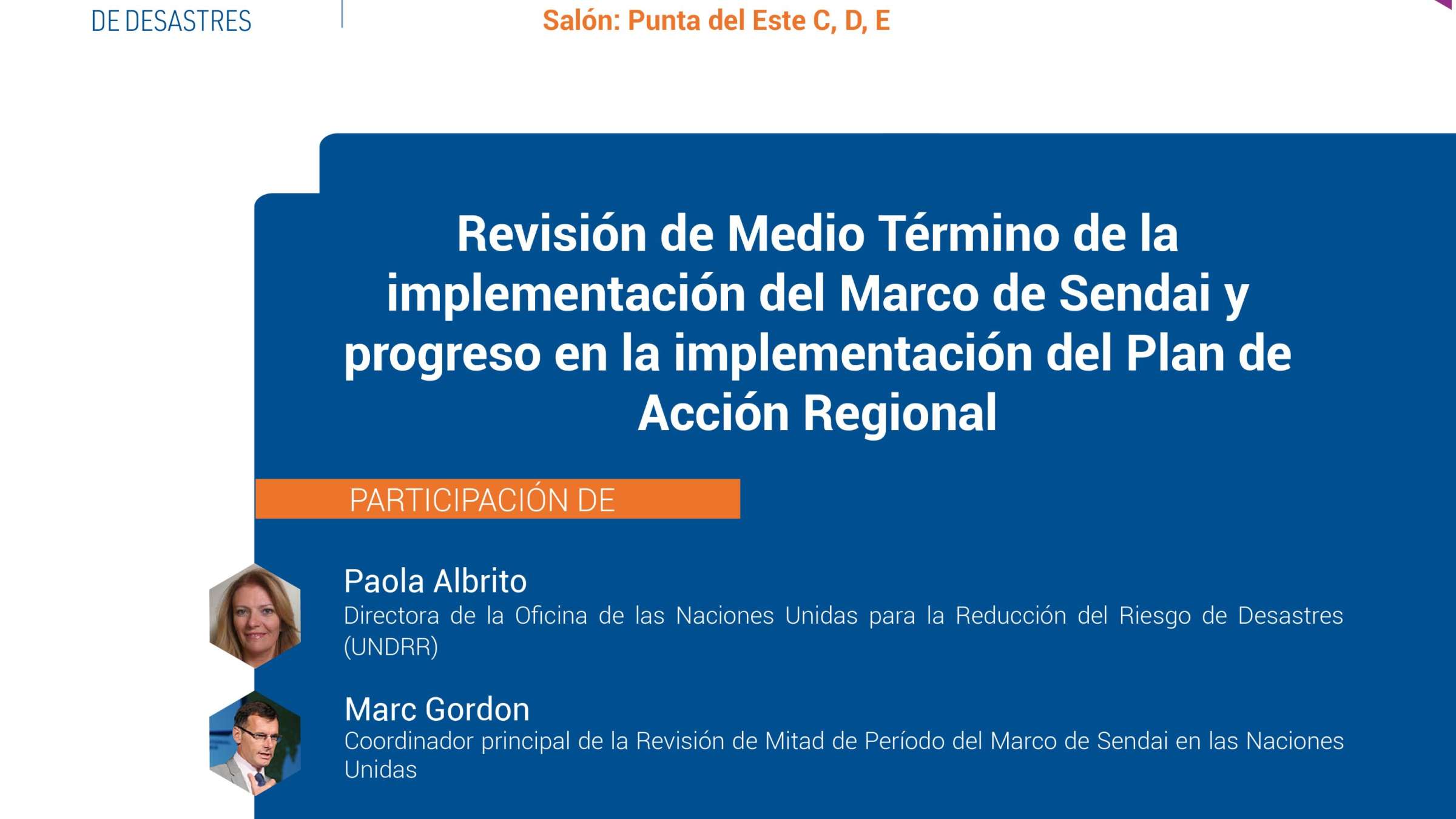SPECIAL SESSION: Mid-term Review of implementation of the Sendai Framework and progress on the implementation of the Regional Action Plan
The Regional Action Plan was first adopted at the V Regional Platform in Montreal, Canada in 2017 and updated at VII RP2021 hosted by Jamaica. The RP23, through this session, will support decisions being made by member States with regards to the RAP, led by the Government of Uruguay as host country and with the support of a committee comprised of other national Sendai Framework focal points from throughout the region.
Through consultations and review of States and other stakeholders, the Sendai Framework Midterm Review (MTR SF) will assess progress made, examine challenges experienced in preventing new and reducing existing disaster risk, explore context shifts and new and emerging issues, with the view to identifying renovations to risk governance and risk management approaches and mechanisms able to contend with 21st century challenges, amplifying and accelerating action in all sectors and at all scales through to 2030 and beyond, in pursuit of the outcome and goal of the Sendai Framework, “Our Common Agenda” of the Secretary-General and risk-informed sustainable and regenerative development.
The LAC and Caribbean MTR SF reports highlight some key issues for the region, as do national voluntary reviews* (NVRs) along with thematic studies submitted from the region.
This session will thus allow for a dialogue on some key findings, challenges and recommendations from the MTR SF process in the region, together with the summary global report (January 2023) with a view to consolidating key issues for ministerial and high level consideration.
Furthermore, this will provide valuable inputs in the lead up to the HLM at the 77th UN General Assembly, as well as for evaluating progress in the RAP with a view towards consolidated action over the next 2 years.
Specific areas of interest could also focus on any or all of the following:
- Risk-Informed Sustainable Development;
- A comprehensive approach to climate and disaster risk management in a rapidly changing global risk landscape;
- Risk-informed investment and financing disaster risk reduction
- Preventing risk and capitalizing on opportunities from rapid technological change and other frontier risks
- A One Health Approach for ecosystem health and pandemic preparedness
- Resilient infrastructure systems for the 21st century and beyond
- Water for Climate, Resilience and Environment
- National legislative frameworks for disaster risk reduction; governing for risk at all levels
- Disaster risk governance in context of crisis and instability
- Multi-hazard early warning systems for all
Session objectives
Review main findings of MTR SF process in the region, links to RAP and key areas for moving forward with a view to consolidate a position to be brought to the high-level meeting on 18-19 May 2023 in New York.
Learn more
Midterm Review of the Sendai Framework (MTR SF) webpage: https://sendaiframework-mtr.undrr.org/
High-Level Meeting on the MTR SF webpage: https://sendaiframework-mtr.undrr.org/high-level-meeting-midterm-review-sendai-framework-disaster-risk-reduction-2015-2030
Voluntary national reports
Americas
Regional reports
Regional Report: Midterm Review of the Implementation of the Sendai Framework for Disaster Risk Reduction 2015-2030 for Latin America and the Caribbean (English and Spanish)
Global “summary” report:
Main findings and recommendations of the midterm review of the implementation of the Sendai Framework for Disaster Risk Reduction 2015-2030 (English and Spanish)
Other contributions
LAC Women's Network: Thematic study for the Mid-Term Review of the Implementation of the Sendai Framework for DRR 2015-2030 (English and Spanish)
Thematic studies

